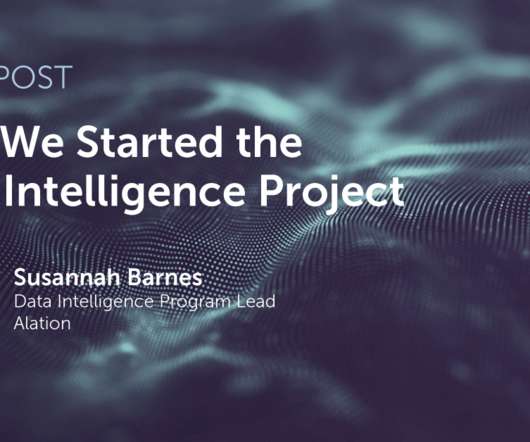It’s 2025. Are your data strategies strong enough to de-risk AI adoption?
CIO Business Intelligence
DECEMBER 11, 2024
If 2023 was the year of AI discovery and 2024 was that of AI experimentation, then 2025 will be the year that organisations seek to maximise AI-driven efficiencies and leverage AI for competitive advantage. Primary among these is the need to ensure the data that will power their AI strategies is fit for purpose.

















Let's personalize your content